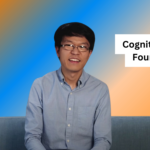Anton Korinek, a prominent economics professor at the University of Virginia, is advising his students to embrace a groundbreaking technology that promises to reshape the field of economics: generative artificial intelligence, or “genAI.” While economists have already been utilizing machine learning to analyze data and develop economic projections, genAI represents a significant leap forward in this domain. This technology, which underpins ChatGPT and similar tools, has made remarkable strides in recent months and is poised to revolutionize economic research.
The Power of GenAI
According to Korinek, genAI is a game-changer for economic research. His paper, recently accepted for publication by the Journal of Economic Literature, suggests that genAI can enhance economic research in six key areas: ideation and feedback, writing, background research, data analysis, coding, and mathematical derivations. By utilizing large language models like ChatGPT, genAI can empower economists to streamline their work and produce more effective results.
GenAI chatbots like ChatGPT, Microsoft’s New Bing, Google’s Bard, Anthropic’s Claude 2, and Meta’s LlaMA 2 offer several valuable features. They can assist economists in brainstorming research ideas, evaluating research plans, copy editing, fine-tuning writing, and even summarizing extensive research papers. For example, ChatGPT-4 can summarize passages of text up to 3,000 words, while Claude 2 can handle up to 75,000 words, covering the length of most academic research papers.
In addition to simplifying writing tasks, genAI tools can also help with coding, translating, explaining, and debugging code, particularly in languages such as Python and R. However, it is worth noting that genAI’s mathematical capabilities are currently limited. Still, the latest versions of these chatbots, such as ChatGPT-4, offer more advanced features and capabilities than previous iterations.
A Teaching Assistant
Economists Tyler Cowen and Alex Tabarrok at George Mason University published a paper titled “How to Learn and Teach Economics with Large Language Models, Including GPT.” This paper highlights how genAI can be a valuable asset in the classroom. GenAI chatbots like ChatGPT and Bing Chat can assist in creating syllabi, improving writing, suggesting ideas, and solving simple economic models with explanations. While they may not yet be ready to tackle complex Ph.D. level problems, they prove highly effective for teaching undergraduate students.
Forecasting with GenAI
GenAI’s capabilities extend beyond research and teaching; it also demonstrates promise in forecasting economic trends. A recent working paper authored by policy advisers at the St. Louis Fed compared inflation forecasts generated by Google’s PaLM, a large-language model chatbot, to those of leading macroeconomic forecasters. The results indicated that PaLM’s predictions produced fewer errors, suggesting that large language models might provide an accurate and cost-effective alternative for forecasting inflation.
Impact on Employment
The introduction of genAI into the field of economics is unlikely to result in immediate job displacement. Instead, it is expected to enhance economists’ productivity and efficiency. A study by job site Indeed suggests that certain jobs, particularly software development roles, are more exposed to the transformative potential of genAI.
Svenja Gudell, Indeed’s chief economist, emphasizes that genAI has the potential to create better jobs by eliminating undesirable tasks. However, this transition may be turbulent and painful for some industries. Companies may choose to reduce labor costs by laying off workers if genAI can maintain their current levels of output. Alternatively, companies may opt to retain their employees and leverage genAI to enhance productivity. Regardless, genAI introduces a level of risk to employment in these sectors.
Gudell emphasizes that economics will always require a “human touch.” This extends to teaching students and delivering presentations to audiences, but it’s equally vital when working with genAI. The interpretability of economic models, understanding the reasoning behind results, and contextualizing outcomes all demand human intervention.
In conclusion, genAI is poised to be a transformative force in the field of economics, enhancing research, teaching, and forecasting capabilities. While it may introduce changes to employment in the sector, it also offers the promise of creating more efficient and productive roles for economists. The human touch in economics remains invaluable, ensuring that economic insights are not only generated but also understood and applied effectively.










